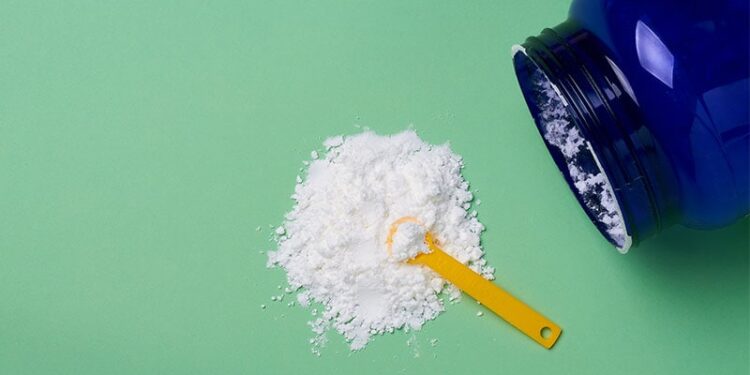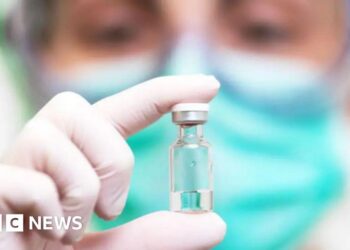Taurine enjoys a strong reputation for boosting both physical and mental performance and has long been a staple ingredient in many energy drinks. A 2023 study in Science even suggested that supplementing this amino sulfonic acid — which the body can produce endogenously — could extend life span, at least in mice and monkeys.
That research, led by Parminder Singh, PhD, of the Buck Institute in Novato, California, also observed that taurine levels in human blood appear to decline with age. These findings helped fuel a rise in over-the-counter taurine supplement sales. But new evidence suggests that the antiaging effects may be overstated — and that high intake of taurine could even pose risks, including a possible increase in blood cancer susceptibility for some individuals.
Poor Fit as Aging Biomarker
A more recent Science study casts further doubt on taurine’s longevity promise. Maria Emilia Fernandez, PhD, and colleagues at the National Institute on Aging, Baltimore, found that taurine does not serve as a reliable biomarker of biological aging.
Unlike the earlier cross-sectional study, their longitudinal research repeatedly measured taurine levels in participants over time. The results showed no consistent age-related decline. In many cases, taurine concentrations increased with age. The researchers concluded that individual variability far outweighed any patterns linked to aging.
No Reliable Reference Ranges
“There are no reliable reference values for taurine that could be applied broadly to the general population,” Kristina Norman, MD, head of the Department of Nutrition and Gerontology at the German Institute of Human Nutrition in Potsdam-Rehbrücke, Nuthetal, Germany, told Medscape’s German edition.
Still, she noted that the study doesn’t rule out the possibility that taurine may have beneficial effects in specific contexts — such as for cardiometabolic health. “That was not the question Fernandez and her colleagues set out to explore,” said Norman, who is also the deputy director of the Research Group in Geriatrics at the Charite Universitätsmedizin Berlin, Berlin, Germany.
“There are a number of interventional studies on taurine supplementation,” Norman added, “but the results have been inconsistent, which makes interpretation difficult.” Currently, the effects of taurine appear highly dependent on individual factors, including a person’s age and underlying health status. As such, Norman advised that taurine supplementation should neither be broadly recommended nor discouraged at this stage.
Taurine in the Diet — and in the Data
According to the European Food Safety Authority, the maximum safe daily intake of taurine is 100 mg/kg of body weight — about 7 g for a 70-kg adult. European regulations limit taurine in energy drinks to no more than 4 g/L. Taurine also occurs naturally as a breakdown product of the amino acids cysteine and methionine, particularly in meat, fish, seafood, and dairy products.
Fernandez’s study analyzed data from three human cohorts (973 participants in total) as well as blood samples from rhesus monkeys and mice. The researchers found no evidence of age-related declines in circulating taurine levels among healthy individuals — in fact, levels were often stable or increased with age. Diet, rather than age, showed a stronger correlation with taurine concentrations.
Moreover, they found no association between taurine levels and physical parameters such as muscle strength or body weight. “These findings challenge the prevailing hypothesis that taurine declines with age and contributes to aging,” Norman said.
Linked With Leukemia Cell Growth
A second study, recently published in Nature, has raised new concerns about potential risks associated with high taurine intake.
Researchers led by Sonali Sharma, PhD, from the Department of Biomedical Genetics at the Wilmot Cancer Institute, University of Rochester Medical Center, Rochester, New York, found elevated taurine concentrations in the microenvironment of leukemia cells. They also identified taurine transporters on the cell membranes, which facilitated the uptake of taurine into the cells, where it appeared to support glycolysis. According to Sharma’s team, taurine may play a role in both the development and progression of leukemia.
“It’s still unclear whether this potential risk applies broadly or only to certain individuals — such as those with a personal or family history of blood cancer,” said Norman. She also noted that it remains uncertain whether orally supplemented taurine even reaches the tumor microenvironment.
Nevertheless, she added, the findings open up new therapeutic possibilities — namely, targeting taurine transporters in malignant cells as a novel approach to leukemia treatment.
Benefit for Longevity or Performance
The Nature study also reinforces the need to re-evaluate taurine’s use as a dietary supplement. “Individuals at increased risk of leukemia should probably avoid taurine supplementation,” Norman advised.
More broadly, she noted there is currently no strong evidence to support taurine’s use for enhancing physical or cognitive performance or slowing the aging process. “We simply don’t have high-quality data confirming whether taurine works — or at what dose,” Norman said.
She also cautioned that taurine’s side-effect profile remains poorly understood. “Taurine could potentially offer benefits in some clinical contexts,” she acknowledged. “But right now, I would discourage people from taking it on their own ‘just in case.’”
This story was translated from Medscape’s German edition.
Source link : https://www.medscape.com/viewarticle/taurine-energy-drink-darling-cancer-suspect-2025a1000jkx?src=rss
Author :
Publish date : 2025-07-24 07:44:00
Copyright for syndicated content belongs to the linked Source.











